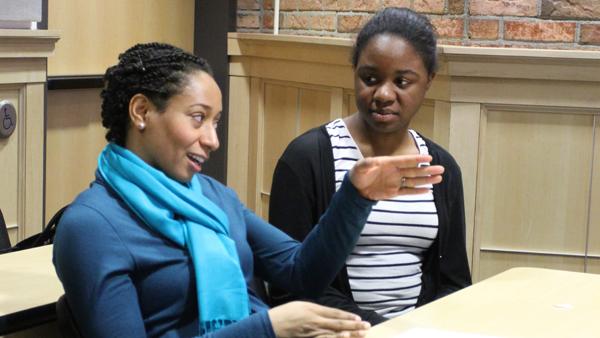
Ithaca College is celebrating Black History Month with events intended to open up conversation about race through the stories of black social activists.
The events were organized and facilitated by the Office of Student Engagement and Multicultural Affairs, the African-Latino Society and other student organizations on campus. The events honor the historical achievements of heroes of race equality and discuss contemporary issues concerning racial injustice.
Last year, the major theme of the Black History Month events was “Black Male Society.” This year, some events organized by ALS will revolve around the struggles of black women in gaining equity and respect in modern society. Earlier in the month, there was a screening of “All the Power to the People,” a performance of “DREAM ACTS: A Play About Undocumented DREAM-Eligible Youth” and a presentation for National Black HIV/AIDS Awareness Day.
Events planned for the rest of the month include documentaries and workshops focusing on social justice issues involving race and sexual orientation. Hip-hop and African dance performances are also planned to provoke discussion about race issues through music — not just words.
The Black History Month events are designed to open up the discussion of race to all students, John Rawlins III, assistant director of OSEMA, said.
“It’s an opportunity for individuals to educate and be educated on different aspects of those cultures, on society justice issues that plague our society even still today, to recognize and celebrate rich history and culture,” Rawlins said. “It helps to unify the campus as well.”
Rawlins said he wants more students to enter the discussion about race, even if they don’t feel qualified to speak with authority. He said everyone can play a role in advancing social justice.
“This is a place to get educated,” Rawlins said. “When you’re distanced from the situation, and when you just don’t really have the knowledge, that’s what can make these sort of programs intimidating … But our entire campus can be part of the conversation, and our entire campus can find agency in these conversations.”
Rawlins said students of all backgrounds benefited from the sacrifices of civil rights advocates, so everyone needs to be a part of the discussion of race.
“These heroes who fought so hard for many of the privileges many of us have today could’ve said, ‘I can’t make a difference, my voice won’t matter,’ but they didn’t say that, which is why we have the privileges we have today,” Rawlins said.







